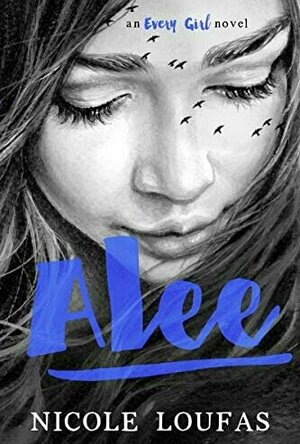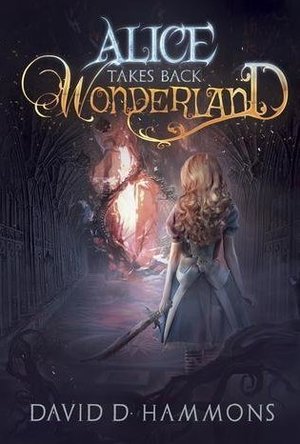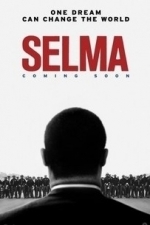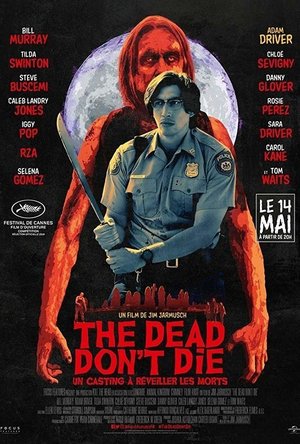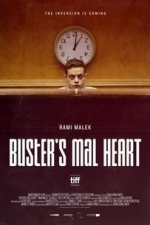Heather Cranmer (2721 KP) rated Alee: an Every Girl novel in Books
Dec 2, 2019
The book starts out with Alee as a 17 year old high school senior. After sleeping with her boyfriend's best friend, she dumps her boyfriend for being too selfish. After being slut shamed at school, Alee finds comfort in her best friend Bryn. However, while at swim practice, Bryn is shot and killed. Around that time, Alee reconnects with her father that left her and her mother when she was 5, but even he isn't really there being as he's a homeless drug addict. With everything going wrong, Alee finds solace in Laine, her now ex-boyfriend's best friend - the one she slept with. The book talks briefly about Alee's life until the age of 21 where it really focuses on what is going on with Alee. When a major life even happens, Alee is thrown into a downward spiral that she may not ever escape.
I thought the plot for Alee was written beautifully. It's a story that most people can relate to in some way. I was sucked into the plot, and I felt like I was a ghost watching Alee's life unfold from the age of 17 to 21. There are a few minor plot twists which are interesting, but there are no cliff hangers. All of my questions were answered by the end of the book. The pacing for Alee is mostly perfect. There are a few, very rare, times where the pacing slows down, but it instantly picks right back up. I was never bored while reading Alee.
The characters in Alee felt very realistic and fleshed out. In fact, I felt like I knew all of these characters at one point in my life. Alee is such a strong character. She has had so much bad happen to her. It's as if she can't catch a break. It was interesting to follow Alee's thoughts on everything that would happen to her. She tried to stay positive even when her world was crashing down. I absolutely loved Alee, and I kept wanting something positive to happen to her. Laine seemed like such a great guy, and it was obvious how much Alee meant to him (and him to Alee). I loved reading about the love between Laine and Alee. I liked how Loufas made them feel like a real couple by giving them problems as well and not some Hollywood romance. I never really liked Benny. He was well written, but I always felt like I couldn't trust him. Throughout the book, I just kept wishing that he'd stay away from Alee!
Alee is a dark read, and it has quite a few strong triggers. These include gun violence, death, murder, suicide, rape, drug use, alcoholism, miscarriage, profanity, mentions of underage sex, and sexual situations (although not too graphic).
All in all, Alee was a very interesting and emotional read. If you are a fan of sunshine and rainbow books, Alee is not for you. However, if you're after a gritty, beautifully written realistic fiction novel that discuses tough issues, then Alee is the book you've been waiting for. I would definitely recommend Alee by Nicole Loufas to those aged 17+. Alee is one of those books that will keep you thinking about everything that happened in it long after you've finished reading it.
Sophia (Bookwyrming Thoughts) (530 KP) rated Alice Takes Back Wonderland in Books
Jan 23, 2020
This review and more can be found at <a href="http://www.inwonderlandbookblog.com/2016/01/alice-takes-back-wonderland-review.html">In Wonderland</a>
Alice Takes Back Wonderland is one peculiar book – it took awhile for me to get into the story, but not bad overall (I've read worse).
The main character, Alice, is a little similar to Alyssa from Splintered – she talks to bugs and flowers, and they talk to her as well. And unlike Alyssa, who keeps her "ability" a secret, those around Alice assume she's a nutcase – she's been assumed to have schizophrenia along with ADHD. Alice also isn't related to Wonderland Alice – she just ended up going down the rabbit hole at seven and came back a completely different person.
Years later, just when Alice thinks everything in Wonderland was an imagination, the White Rabbit appears again to bring Alice back to save Wonderland. There, Ace of Spades has taken over the land and has been trying to "humanize" the creatures by taking the wonder out of them, thus taking Alice back down the rabbit hole once more.
When Hammons introduces us to Wonderland and Alice tries to reunite with the creatures she met when she was seven, it's really hard to get into the story (and at the beginning too – no fun). There's a lot of nonsense going on in Wonderland with very little sense – I haven't read Alice In Wonderland by Lewis Carroll myself, but I personally think Hammons did a pretty good job trying to capture the nonsensical aspect Carroll uses in the original story.
Now, in the case of getting me to read the story, however, I'm starting to think I should just call it off (much to Ella's dismay).
As soon as Alice leaves Wonderland to recruit other kingdoms (fairy tales), on the other hand, the story becomes less nonsensical and more of something that I could fully comprehend and wrap my head around. (I got the gist of Wonderland – I did not understand what all the creatures were saying.) Hammons introduces us Peter Pan and the Lost Boys, Pinocchio, Cinderella, Snow White, Sleeping Beauty – all recognizable in some way. But that's not all the fairy tales involved.
Hammons also throws in heroes of myth and legend as well – people such as Joan the Ark, Hercules, King Arthur, Loki, etc. At that point, I pretty much took a step back (or almost) from the book. There are way too many tales involved in this battle to take back Wonderland and stop the Ace of Spades from taking the wonder out of everyone. Those characters don't play a major role like Peter Pan, Pinocchio, Snow White, and all the ones mentioned earlier, so it's less confusing. I just think Hammons should have kept it strictly at fairy tales rather than all of them.
(I'll give him this: all of them are individual kingdoms instead of mushed together into one. Less confusing.)
To make it worse, most of the characters also play multiple roles, which I won't say because I might spoil something. But still – too much myth and legend is mentioned in this vast world Hammons creates.
Overall, not bad for a book that takes far too many tales into its plot. It takes some time to get used to the story, but once you get past Wonderland's bit of remaining nonsense and enter Neverland and the Grimm Kingdom, the story has an adventure or two as Alice learns that maybe fairy tales aren't as literal as they seem.
Gareth von Kallenbach (980 KP) rated Selma (2015) in Movies
Aug 6, 2019
The film does a good job of providing back story of what was happening that brought on the marches. It portrays the horrific brutality of a time when blatant hatred ripped through the soul of the nation.
During the Selma march, peaceful protestors dressed in their Sunday’s best were beaten (even killed) by local police. However, even the most hard to watch moments of violence were toned down in comparison to actual footage from the Selma march.
The visceral moments of raw emotion and terrible violence will give the audience chills
Martin Luther King, Jr. (David Oyelowo) would of course be a hard pair of shoes to fill as an actor. But somehow Oyelowo pulls it off with a passion that shows in his eyes. Even the ways in which Oyelowo delivers his speeches were powerful and moving, much in the way of the real MLK, Jr.
An intriguing part of the film is the attention given to MLK, Jr.’s wife, Coretta Scott King (Carmen Ejogo). She is a less talked about figure in history, but perhaps this will now change. She is shown to be a very strong and intelligent woman, who serves as the backbone to the King family. Her role as wife, mother, and political supporter are highlighted.
The cast selection is top notch, making the film very realistic.
Tom Wilkinson, who plays Lyndon B. Johnson, practically resurrects the late President. His physical appearance and vocals make the actor almost indistinguishable from the real LBJ. .
However, there is some controversy over the historical accuracy of certain aspects of the film. This especially is true in regards to the portrayal of LBJ.
He is portrayed as under pressure to pass legislation in favor of Black voters, but he himself comes off as a racist whose heart is not in the cause. This portrayal paints a picture of a dishonest man, wielding political power to save face. It is contradicting to the more well-known image of the LBJ who actually cared very much about civil rights and poverty.
The Voting Rights Act of 1965 is thought to be his most important piece of legislative work. It was certainly not just a mere political reaction to protestors, though they surely had a strong impact on making it happen.
No one can deny the power of MLK, Jr.’s work. It is a profound historical example of the possibility for political transformation through the will of the people.
Another point of question is whether or not it was JFK or LBJ who originally ordered the FBI surveillance of MLK, Jr. and those associated with him.
A slightly troubling aspect of the film is that it lacks showing any tinge of gender inequality, which was a pervasive part of that era. Also, it was hinted at that MLK, Jr. had infidelity issues. Personally, I had some question as to whether or not this was true, or if it was even a useful piece of information to include. Perhaps it was included to show a more human side to MLK, Jr.
All of these questions aside, “Selma” is an amazing and moving piece of work.
A finely crafted cinematic reflection of a deep and painful scar on American history, I give “Selma” 4.5 out of 5 stars.

Tesco Groceries for iPad
Shopping and Food & Drink
App
The Tesco Groceries app makes your shopping easier, quicker and more convenient than ever. Order...

Tesco Groceries for iPhone
Shopping and Food & Drink
App
The Tesco Groceries app makes your shopping easier, quicker and more convenient than ever. Order...

Lybrate - Consult a Doctor
Medical, Health & Fitness and Stickers
App
Lybrate – Consult a Doctor is India’s #1 Medical platform connecting over 10 million users to...
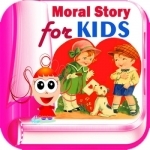
Best Moral Story Books for Kids
Book and Education
App
This Application Helps Kids to learn some good lessons about good habits to follow in life. You can...
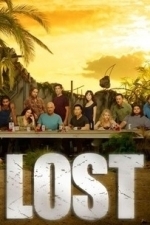
Lost - Season 1
TV Season Watch
Oceanic Air flight 815 tore apart in mid-air and crashed on a Pacific island, leaving 48 passengers...
Emma @ The Movies (1786 KP) rated The Dead Don't Die (2019) in Movies
Jun 20, 2020
I won't bother with an extended synopsis because honestly I don't know what the point would be... it's zombies, everyone is trying to stay alive, literally nothing else is really happening in the story.
Up until this point I never really understood people using the word "meta" (unless it was DC related), I get it now. Officer Peterson, played by Adam Driver, is so meta that there actually may not be any more to go around.
The cast felt like it was just quirky enough to work together, especially as this wasn't going to be a traditional zombie movie. Looking back at the actors now I'm wondering if I might have enjoyed this movie more if it had unknown actors in it. I don't think it would have risen much higher in the rankings but I would have been less annoyed by some of the happenings.
Bill Murray plays Chief Robertson, a man who is seemingly always slightly confused by everything and also never becomes more than mildly alarmed by what's going on. The character and the performance were both rather boring. Murray came alive about as much as any of the zombies did.
The same can be said for Adam Driver, though I actually think that's par for the course with the way he acts rather than anything else. He always feels like mid-tier Keanu Reeves without the range. Once you realise that Peterson has the meta inside track it becomes a challenge to see anything he says in any other way. The script became rather frustrating because of this.
We're shown a very strange Tilda Swinton in the trailer and you have to wonder if the make-up direction was just "I want her to be the palest she's ever been and throw in a little "Ring" vibe for good measure." Zelda is probably the perfect zombie apocalypse companion, but she doesn't make for very dynamic viewing.
All of this negative feeling can be laid squarely at the script's door. It has little of interest to warrant a story at all, which is weird because there are elements that you think lead somewhere and then inexplicably don't. The ending is particularly bad and is what I've dubbed the "Stephen King ending". I won't expand on that here because it definitely constitutes spoilers if you haven't seen it.
There are some nice touches. The animal behaviour, the character of Mallory, and some of the effects on Selena Gomez. There's also some that left me questioning how they've portrayed zombies in this compared to other z-movies, but it's not in the trailer and while it's in my notes I'm wondering if I didn't just imagine the whole thing.
Those few little snippets can't save this movie. The poor script has several (that's me being generous) holes in it that just don't stand up when you look closely, and it's not good enough to give you anything else to look at apart from those holes. From its "maybe sciency things will cover the lack of reasoning" beginning to the "Stephen King ending" I was very disappointed.
Originally posted on: https://emmaatthemovies.blogspot.com/2019/07/the-dead-dont-die-movie-review.html
Kirk Bage (1775 KP) rated Buster's Mal Heart (2016) in Movies
Jan 22, 2021
I had added it to my watchlist some time during my obsession with Rami Malek and Mr Robot, knowing he had popped up in several cameo roles in big films over the years, but keen to see him take a lead role before the Oscar train of Bohemian Rhapsody and A-list fame. It is also that kind of film that arthouse cinemas would show during indie festivals or on late night double bills; stepping stones, hopefully, for all concerned to bigger things.
Writer director Sarah Adina Smith hasn’t quite made it yet, so you probably haven’t heard of her. She directed 2 episodes of Hanna, which I liked a lot, and will be talking about on The Wasteland at some point, and a few other bits of TV, but that’s about it. Judged on this oddity there is a good deal of vision and talent going on – but not yet an eye for total coherence.
Buster doesn’t know what it is, and neither do the critics, listing it as a mystery, a drama, a thriller, a sci-fi and a crime film, which… ok, yes, it has elements of all those, but isn’t really any of them, also. The titular character played by Malek is an ethereal enigma trapped in his own weird existence, and through a series of out of time and out of sequence flashbacks we come to understand his journey and descent into madness, after encountering a down at heel salesman with a big conspiracy theory to pedal, called The Inversion.
It remains shrouded in ambiguity and strangeness for most of the modest, but not off-putting, 96 minute running time, as Malek grows a beard, loses a beard and grows a beard again. Even when all is said and done, it takes a minute to put it all together and figure out what the point of it was. As something curious to let wash over you, I have to say I kinda liked it. Malek was as committed and interesting to watch as he always is, and I was just happy that films like this can still get made.
Ultimately, possibly a short film idea stretched too thin into a feature, which is an all too familiar phenomenon for new directors. But, an idea interesting and original enough to earn the right to be thought of as “showing potential”. If Smith ever does make it as big as say Jim Jarmusch or Kelly Reichardt then the arthouse geeks like me will be looking back on this with great interest. You just wonder how many people will see it at all, now the days of post midnight movies on a set channel are pretty much over?
